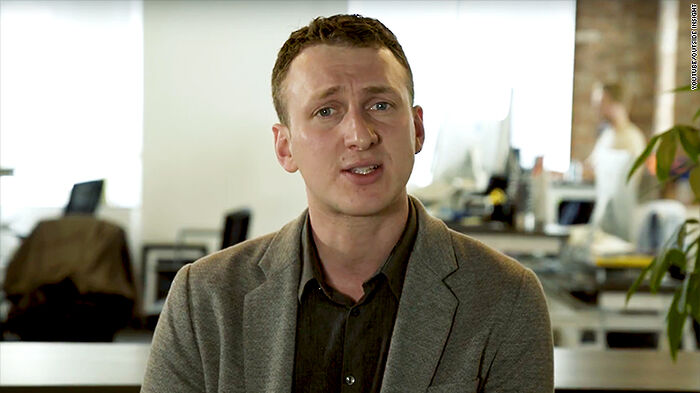University leaks show internal turmoil triggered by academic’s Cambridge Analytica work
The Cambridge neuroscientist at the centre of the data scandal has also been criticised by Facebook founder Mark Zuckerberg

Questions are swirling about how close research from the University of Cambridge came to being used by Cambridge Analytica, the controversial consultancy firm at the heart of a rapidly-developing data scandal.
Reported disruptions within the University caused by Dr Aleksandr Kogan – the Cambridge academic accused of misusing data gathered via a personality quiz – were thrown into sharper relief today after Facebook’s CEO and founder, Mark Zuckerberg, personally criticised the neuroscience researcher.
Facebook announced last week that it had banned both Kogan and Cambridge Analytica for breaking rules on sharing user data.
Kogan, who this morning said he has been made a “scapegoat” by Facebook and Cambridge Analytica, is alleged to have used a now-removed function to gather data from the friends of users who took his personality quiz, which he then passed to the political consultancy firm.
Whistleblowers have said that the data tools developed by Kogan through his company Global Science Research (GSR) were used for ‘micro-targeting’ social media users with political adverts and articles in order to influence the way they voted. Cambridge Analytica’s CEO, Alexander Nix, was suspended last night after a Channel 4 documentary showed members of the company discussing how they could could use unethical tactics to smear politicians.
In his first public statement since the scandal broke, Zuckerberg said “the way our platform worked at the time this meant Kogan was able to access tens of millions” of users’ data. Facebook has previously accused the academic of lying about how the data would be used.
The Observer reported that the data gathered Kogan passed on to Cambridge Analytica had not been deleted, despite guarantees made to the social network by the political consultancy firm.
Speaking to the BBC this morning, Kogan said: “Honestly we thought we were acting perfectly appropriately. We thought we were doing something that was really normal.”
The scandal has sparked a debate about the ethics of using social media data for micro-targeting, in which firms can precisely aim content at users based on their personality type.
The scandal has also exposed deep divisions within the University which were prompted by Kogan’s actions.
According to the Financial Times, members of the University’s Psychometrics Centre, based at Judge Business School, clashed with Kogan over his alleged use of the Centre’s research. Colleagues have suggested Kogan used research by colleagues Michal Kosinski (now at Stanford) and David Stillwell, to develop tools for Cambridge Analytica. It has been reported that Kogan based ‘thisisyourdigitallife’, the personality test application he used to gather Facebook users’ data, on ‘myPersonality’, a similar application created by Kosinski and Stillwell.
The Financial Times report offered further detail on conflicting reports by The New York Times and German periodical Das Magazin about how close the University came to working directly with Cambridge Analytica, which took its name from the University.
Das Magazin reported last year that Kosinki was approached by Kogan – then an assistant professor in the Department of Psychology – in 2014: saying that Kogan express an interest in Kosinski’s research method, and wished to access data from myPersonality. It said that Kosinski became suspicious after researching Kogan’s links to SCL, Cambridge Analytica’s parent company, telling Das Magazin: “The whole thing started to stink”.
The report appears to clash slightly with one from The New York Times: in an article published yesterday, it said that Cambridge Analytica initially approached the Psychometrics Centre, and only reached out to Kogan after the Centre rejected its advances.
The Financial Times reported that the University was forced to bring in legal arbitration to resolve a dispute between members of the Psychometrics Centre and Kogan after they raised concerns about the nature of his work, with the case eventually being abandoned due to complexity. Speaking about Kogan’s work with Cambridge Analytica, an anonymous academic told the paper: “He shouldn’t have done it and when he did the department should have done something about it”.
Varsity contacted the University yesterday to find out what its stated version of events is, but has yet to receive a reply. The University has called on Facebook to hand over “all relevant evidence” in the case.
The University has distanced itself from both Cambridge Analytica and Kogan’s work for the firm, saying: “Based on assurances from Dr Kogan as well as the evidence available to us, we have no reason to believe he used University data or facilities for his work with GSR, and therefore that there is no reason to believe the University’s data and facilities were used as the basis for GSR’s subsequent work with any other party.”
In a leaked email, seen by CNN, Kogan told Cambridge colleagues that “we did our absolute best not to have the project have any entanglements with the University” while undertaking work with the consultancy firm.
 News / Candidates clash over Chancellorship25 April 2025
News / Candidates clash over Chancellorship25 April 2025 Interviews / Dr Ally Louks on going viral for all the wrong reasons25 April 2025
Interviews / Dr Ally Louks on going viral for all the wrong reasons25 April 2025 Music / The pipes are calling: the life of a Cambridge Organ Scholar25 April 2025
Music / The pipes are calling: the life of a Cambridge Organ Scholar25 April 2025 News / Cambridge professor paid over $1 million for FBI intel since 199125 April 2025
News / Cambridge professor paid over $1 million for FBI intel since 199125 April 2025 Arts / Plays and playing truant: Stephen Fry’s Cambridge25 April 2025
Arts / Plays and playing truant: Stephen Fry’s Cambridge25 April 2025







